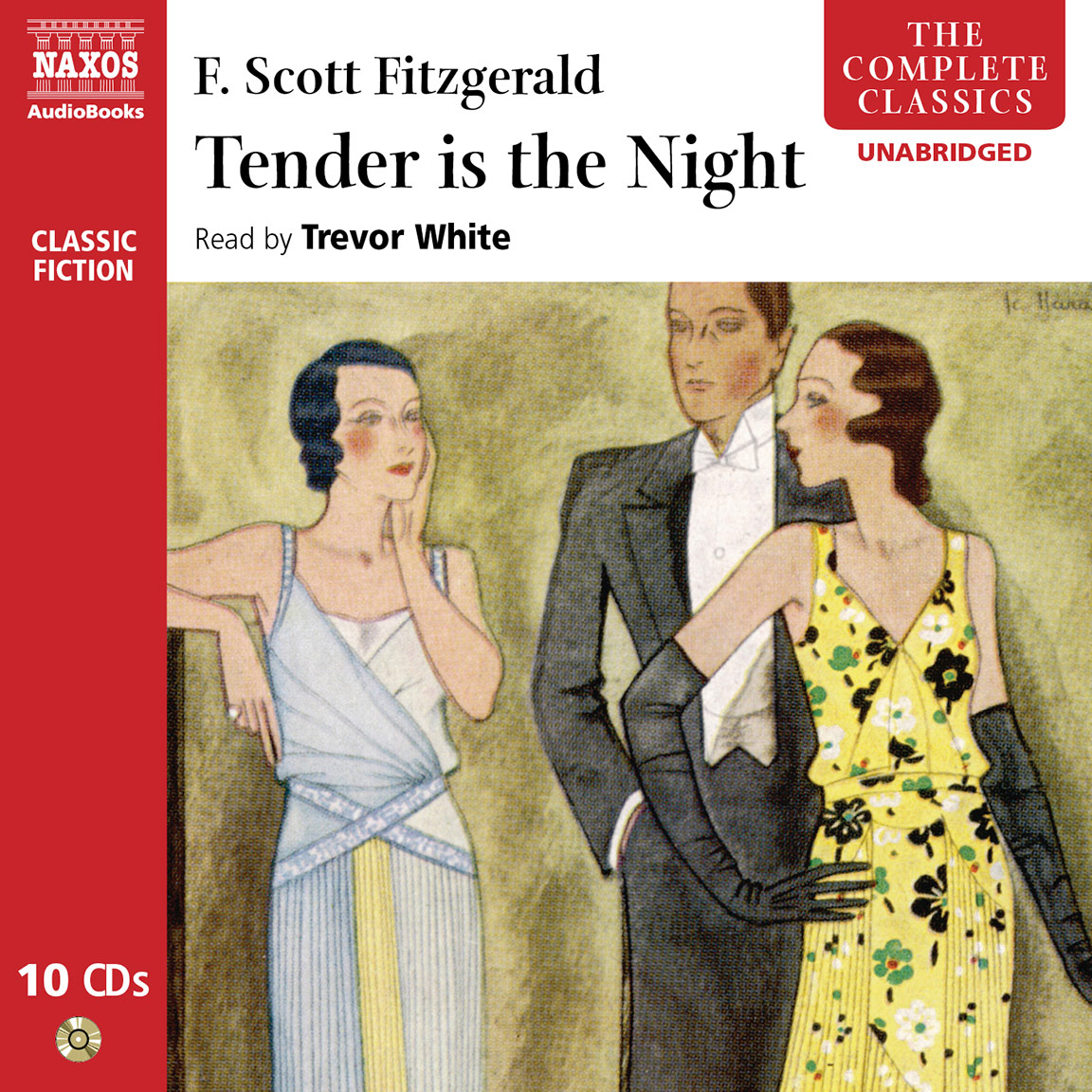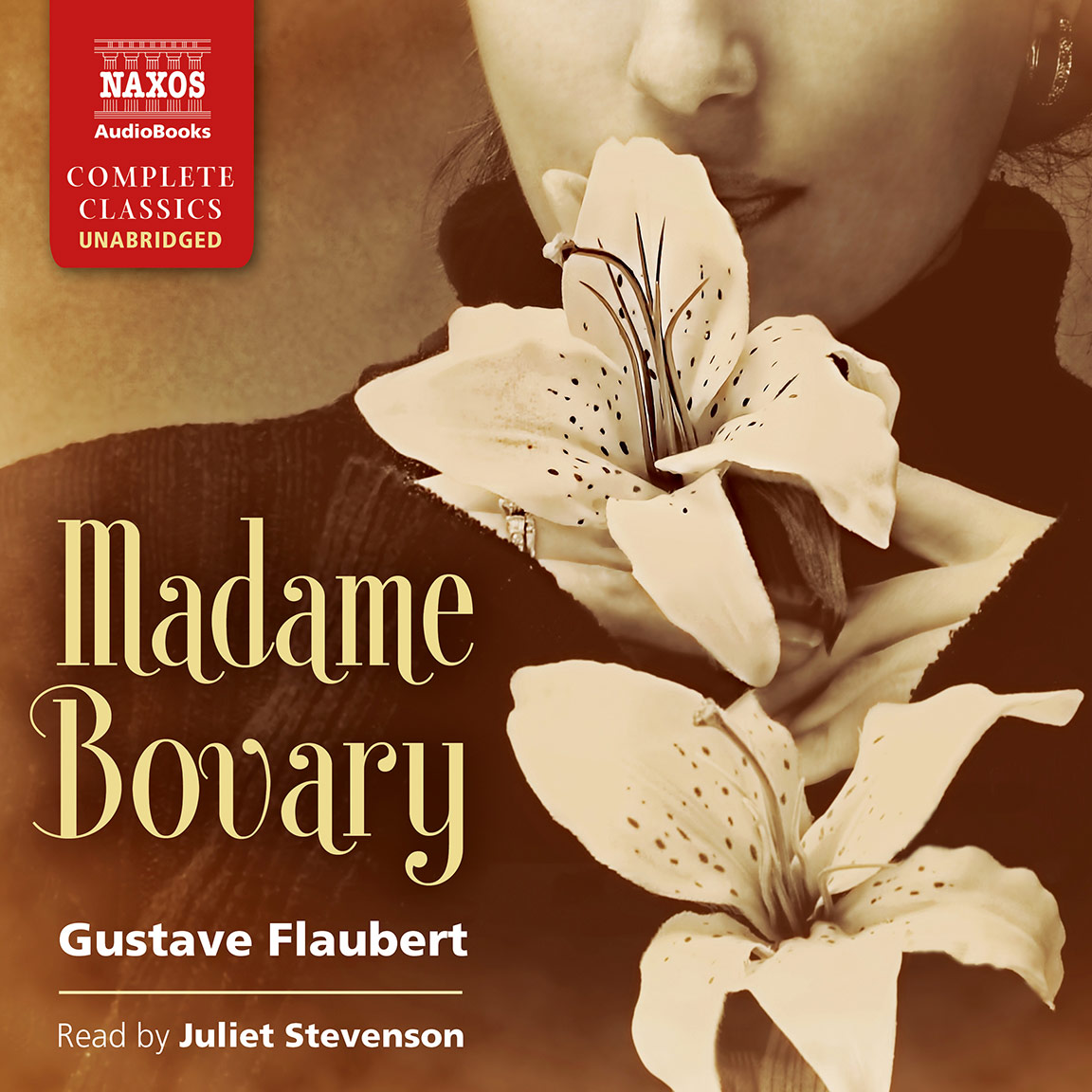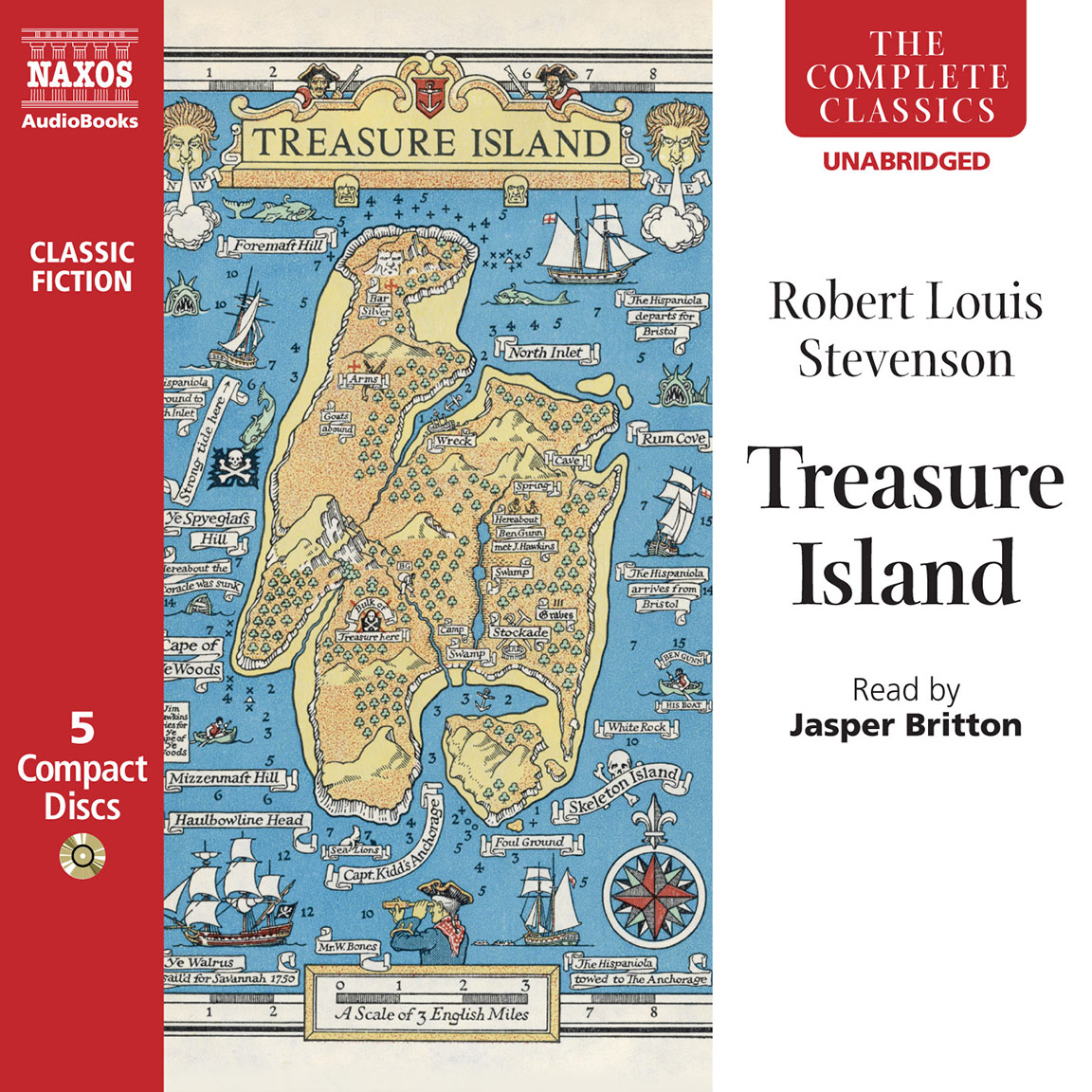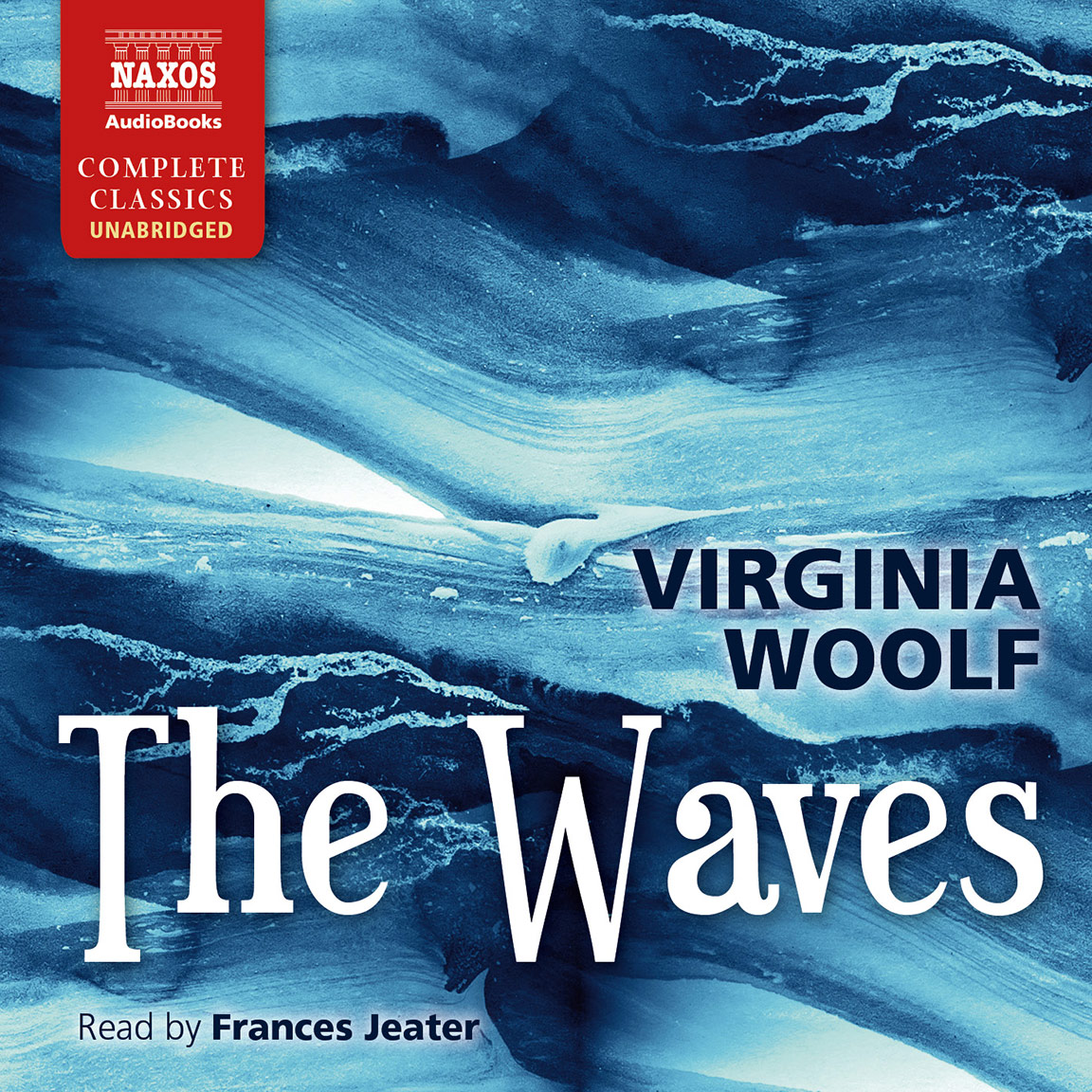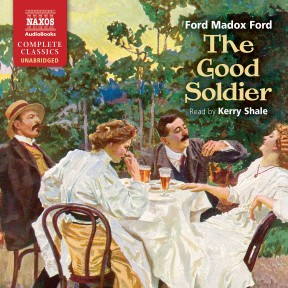
Audio Sample
Ford Madox Ford
The Good Soldier
Read by Kerry Shale
unabridged
Two couples, two marriages; both seemingly perfect, both falling apart. Beneath the surface gentility of the American John Dowell with his wife Florence and the landed grace of Edward and Leonora lie fictions and deceit. There are secret desires, hidden power-games, suicides and madness. Everyone is hiding something; even the narrator can’t be trusted. Brilliantly inventive, tragic and ironic, The Good Soldier is one of the great novels of the twentieth century.
-
Running Time: 8 h 0 m
More product details
Digital ISBN: 978-962-954-936-7 Cat. no.: NA713212 Download size: 117 MB BISAC: FIC004000 Released: February 2010 -
Listen to this title at Audible.com↗Buy on CD at Downpour.com↗Listen to this title at the Naxos Spoken Word Library↗
Due to copyright, this title is not currently available in your region.
You May Also Enjoy
Reviews
Whether you know Ford Madox Ford’s The Good Soldier or not, don’t miss this reading by Kerry Shale, who varies his performance brilliantly as the story shifts from platitudes to a rollercoaster ride of intimate revelation. Written on the eve of the First World War and satirising the complacency and immorality of the age, the book is an experimental narrative, moving to and fro in time with explanations inserted as if recounted to a friend. ‘This is the saddest story I have ever heard’ is the opening line, but within seconds we are wondering how on earth it can be as we hear of the impeccable social credentials of the two couples at its core. Give it a few minutes, and you will be agog, uncertain whether to laugh at its first-person narrator’s gullibility or cry at the tragic outcome. Poetically resonant and painterly in its word pictures, the book was regarded by Ford as his best. Don’t be misled by the studiously ironic title: the only conflict in the story is that between the sexes.
Christina Hardyment, The Times
‘This is the saddest story I have ever heard’ has to be the best opening sentence of any novel ever written, doubly so when you discover that it is also totally misleading. Confusion, said VS Pritchett, was the mainspring of Ford’s art as a novelist, and nothing, surely, confuses more than having your story told by an unreliable storyteller. John Dowell, The Good Soldier’s narrator, makes Tristram Shandy sound like a beacon of clarity. Ford’s greatest novel, set in 1904, follows the nine-year acquaintance of two couples, the American Dowells and the oh-so-English Ashburnhams, who meet every summer at a fashionable German spa frequented by transatlantic millionaires and Edwardian Eurotrash. Mrs Dowell and Captain Ashburnham have heart conditions – the medical sort – but it soon becomes apparent that, beneath their conventional formality, all four of them have heart problems: the kind associated with passion, jealousy, infidelity, treachery and, in this instance, the violent deaths of two of the protagonists. Far from being a detached observer as that first sentence implies, Dowell is at the very centre of the drama. Here’s where a good reader (and Kerry Shale is one of the best) gives audio the edge over print. His characterisation of Dowell is breathtakingly subtle: the cultured, only just discernible American accent (Dowell comes from Pennsylvania, where “there are more old English families than you would find in any six English counties taken together”), his disarming confidentiality (which in truth is nothing of the sort), and above all his laugh. Never was a laugh less careless, more calculated to deceive. Listen, and I guarantee you’ll be as dazzled by Shale’s performance as I was.
Sue Arnold, The Guardian
Ford Madox Ford’s The Good Soldier, a novel of desire, cruelty, madness and the rigid snobbery of the Edwardian era, concerns the American Dowells – John and his delicate wife Florence, and the Ashburnhams, ex-soldier squire Teddy and his suffering spouse Leonora. John calls it ‘the saddest story I have ever heard’, but the tale turns out to be a shocking inventory of the appalling things people can do to each other in the name of love. What really went on during their annual sojourns at a German spa only becomes clear as the story unfolds. Kerry Shale’s performance is intimate and compelling, and the listener is gripped by Dowell’s bitter little laughs as he reflects on the perfidy of others, or when he is on the brink of holding back sobs at his own fate.
A performance of such sustained quality as Shale’s would be garlanded with awards in any other medium, but it is the fate of audiobook readers to be unheralded.
Karen Robinson, Sunday Times
Booklet Notes
In his obituary of Ford Madox Ford, Ezra Pound compared his work to that of Homer, saying of the latter’s poetry: ‘Apart from narrative sense and the main constructive, there is this to be said of Homer, that never can you read half a page without finding melodic invention, still fresh, and that you can hear the actual voices, as of the old men speaking in the surge of the phrases.’ There is a deeply poetic element to Ford’s The Good Soldier, and the narrative truly gives the impression of hearing the actual voices – such as that of the unreliable witness whose character informs the very fashion in which the story is told. It is self-consciously achronological, partly because – as the narrator asserts – that is how one might go about telling such a story, and partly because the author was making various points about the novel, about literature, about the relationships between the book and the reader, between the author and the narrator, fiction and truth.
Ford Madox Ford was a champion of such methods, not just in his own works but in that of other people. As an editor he promoted the work of the avant-garde in literature, the likes of Pound, Eliot, Joyce, Hemingway, Lawrence and Conrad; he also published Wells, Hardy and Galsworthy, who might more readily be seen as belonging to the 19th-century tradition. But Ford was comfortable with both the conventions and the iconoclasm of art. His father had been the music critic for The Times, and had championed Wagner as the standard-bearer for the future of music; his maternal grandfather was a member of the Pre-Raphaelite Brotherhood. Ford’s childhood, although deeply blighted by a sense of inadequacy (his father called him a ‘patient but extremely stupid donkey’), was alive to art, artists and the potent capacity of genius.
He was born Ford Hermann Hueffer in Merton, Surrey, to Francis Hueffer, a German who had settled in England four years beforehand, and Catherine Madox Brown. For all the intellectual and artistic stimuli that the household and family would have provided, the death of Ford’s father in 1889 left the family with practically no money. As a result Ford, who had started writing fiction, had an astonishing memory and who was fluent in several languages, could not go to university. He was, himself, never good with money, which, combined with his determination to make a living as a writer, meant that he had to elope to marry his intended, Elsie Martindale, as her family were against the match. The couple were deeply attached at first, but within 10 years the marriage had broken down. Elsie and her family refused to allow a formal divorce, and unsuccessfully took Ford to court for maintenance payments. Ford went on to have a series of long relationships with different women, some of which led to public scandals and others to further legal action – Violet Hunt was legally prevented from calling herself his wife. Such concerns over his status may have led to his changing his name to Ford Madox Ford in 1919.
It is Ford’s
position as a
conduit for
transition that
marks his works.
He had enjoyed early success with fairy tales, and had followed these with poems, more fairy tales, a biography of his grandfather (with whom he lived for a while after his father’s death) and literary criticism, beginning a career of almost endless productivity. He wrote some 80 books (novels, historical novels, romances), published several volumes of poetry and perhaps as many as 500 magazine or journal articles, quite apart from his crucial work as a critic and editor of The English Review and, later, The Transatlantic Review. None of this made him wealthy, though. His stewardship of The English Review left it (and him) in financial trouble, and he ended up in court for bankruptcy. But he had become a hub for the new voices of the 20th century, and collaborated with Joseph Conrad, one of the great figures in the transition between the traditional and the Modernist models of the novel.
It is Ford’s position as a conduit for transition that marks his works. He was acutely aware of the disintegration of a set of values by which Britain – England in particular – had lived for years, and of the impact of the newly arriving world on these old and immoveable customs. The machine age had already arrived, the industrialisation of the world was underway, and the almost feudal systems that had upheld the previous generations were incapable of coping with the social changes that were imminent and inevitable. The Good Soldier is a perfect demonstration of this, and of all Ford’s other great strengths; the title alone carries with it layers of irony, subtlety and self-consciousness, as well as having an extra note of fantasy and autobiography (however unreliable).
The irony, subtlety and self-consciousness rest on the notion of a ‘good soldier’ – someone valiant, fearless, obedient, steadfast; a 20th-century ‘parfit, gentil knight’. This description is an ironic comment on the man to whom it is applied in the book, even though he appears to meet the description. Moreover, it is this hanging on to outmoded notions of behavioural niceties that so tragically undermines the central characters’ relationships. That all said, Ford himself suggested that the title was, in itself, ironic – he had originally wanted to call it The Saddest Story, but his publisher felt this title unlikely to stir the public. Ford mockingly proposed a few alternatives including A Roaring Joke and The Good Soldier, and the publisher decided upon the latter (although why a country at war would be more likely to purchase a book with that title is unclear). Ford said that he regretted this thereafter, but in the same preface he claimed that the story of the novel was true and that he had had to wait until the real protagonists died before he could write it. This is almost certainly not the case, or at least not entirely the case; and if that part of the tale is not quite true, how true is the rest of it? This is, of course, exactly the kind of narrative game with which Ford was playing throughout the book itself.
The truth or otherwise of the novel’s central story is today less significant than the skill of its telling. The shape and idea of the narrative, the use of the erratic narrator, the shifts in time – they had all been developing in Ford’s mind for a decade or so. The book was published in 1915. During the War itself Ford was gassed and suffered shell-shock, but afterwards he continued to write and edit, introducing more new writing and creating his four-volume novel Parade’s End.
Ford has never been held in the same public regard as those whose work he supported and championed. However, he had a central role in literature’s transition between the 19th and 20th centuries, and it is therefore fitting that at his death someone so much of the Modern as Ezra Pound should compare Ford to the greatest of the ancients.
Notes by Roy McMillan
